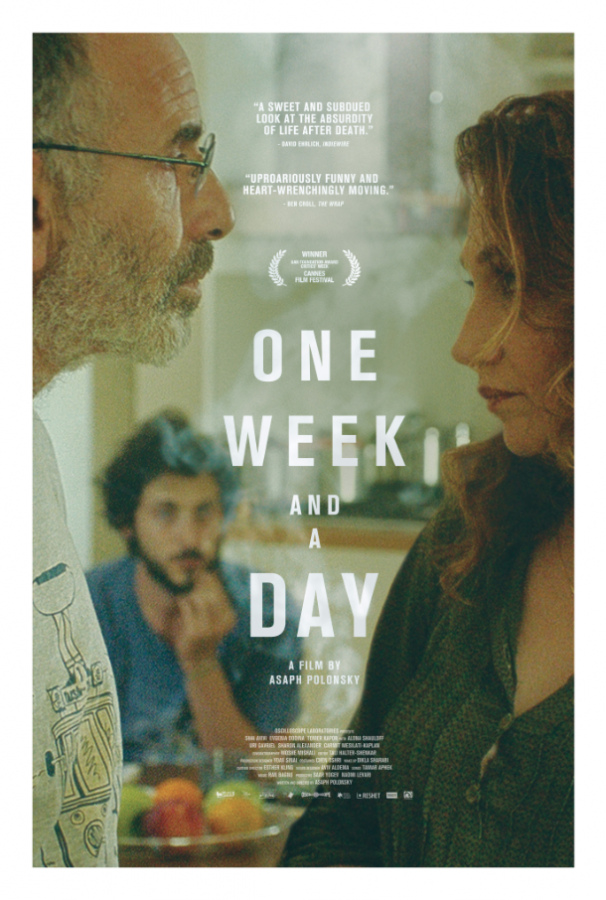‘One Week and a Day’ Is an Uneven Portrait of Grief
Shai Avivi and Evgenia Dodina portray mourning parents Eyal and Vicky following the death of their 25-year old son in “One Week and a Day” by Israeli director Asaph Polonsky.
April 24, 2017
What happens when the religiously allocated grieving process is over — and you’re not done grieving? That’s the unasked question at the very heart of writer-director Asaph Polonsky’s intimate, funny and quietly heartbreaking Israeli drama “One Week and a Day.” The film tells the story of a middle-aged married couple — Eyal and Vicky Spivak (Shai Avivi and Evgenia Dodina) — trying to continue on with their lives after the death of their son Ronnie and the conclusion of their week-long shiva — the traditional Jewish mourning period that typically begins just after the funeral.
Faced with the terrifying prospect of simply moving on with their lives, the Spivak couple spirals out of control. Vicky grows angry and forgetful and Eyal turns to the companionship of his neighbors’ goofball son Zooler (Tomer Kapon) and the numbing effect of his deceased son’s leftover medical marijuana to help his pain.
The plot may be sad, but Polonsky ingeniously starts the story after the most obviously tragic moments. The audience doesn’t see everything the Spivaks have experienced, from the death of their son to his funeral to their shiva which has left them both emotionally and physically exhausted. Rather, they see the lingering effects of those events through the parents’ eyes.
Although the tragedy predates the film’s narrative, it reverberates throughout every frame, music choice and character decision. Most of the focus is on Eyal, whose antics with Zooler are charming and funny, but begin to swerve the plot into a repetitive, episodic rhythm. The audience moves from moment to moment, comedic bit to comedic bit, as if the next sketch is the destination and not the slow crumbling of Eyal’s emotional state. This robs the film of feeling, making it as shapeless and meandering as the grieving process itself.
It’s between these bits and sketches where “One Week and a Day” shines, where Eyal and Vicky exude wandering uncertainty that is at the root of the film’s emotion.
It’s a shame the audience doesn’t get to see more of Dodina’s quiet, reserved Vicky, whose story sacrifices plenty of screen time to the narrative of her much louder, active husband. It’s in the moments where Vicky has a tense encounter with her neighbor or an even tenser encounter at her dentist’s office that the audience realizes if only Polonsky hadn’t been so enamored with the idea of a grieving father turned raving mad, he could have granted Vicky’s narrative the attention and nuance it deserves.
It’s hard to complain too much about a film this earnest and this focused on a specific moment in the grieving process. The performances are top-notch and Polonsky shows a particularly admirable ability to step back and let his script speak for itself, only indulging in directorial flair at perfect and precise moments.
In the end, “One Week and a Day” is a bit messy and unsure of what direction it is going to take next, but ultimately ends up rising above its faults to become something intimate, charming and emotionally true.
“One Week and a Day” will be released in theaters Friday, April 28.
A version of this article appeared in the Monday, April 24 print edition.
Email Tyler Stevens at [email protected].



























































































































































